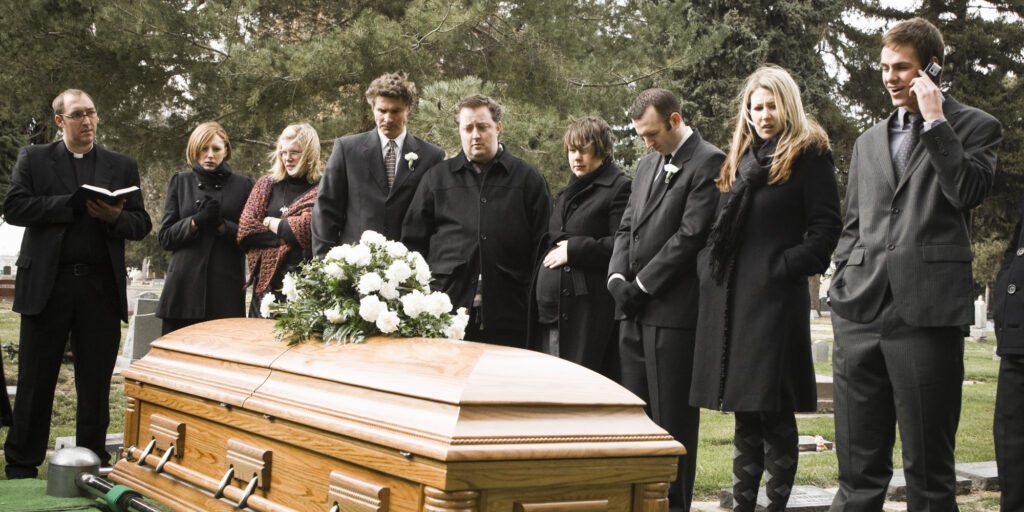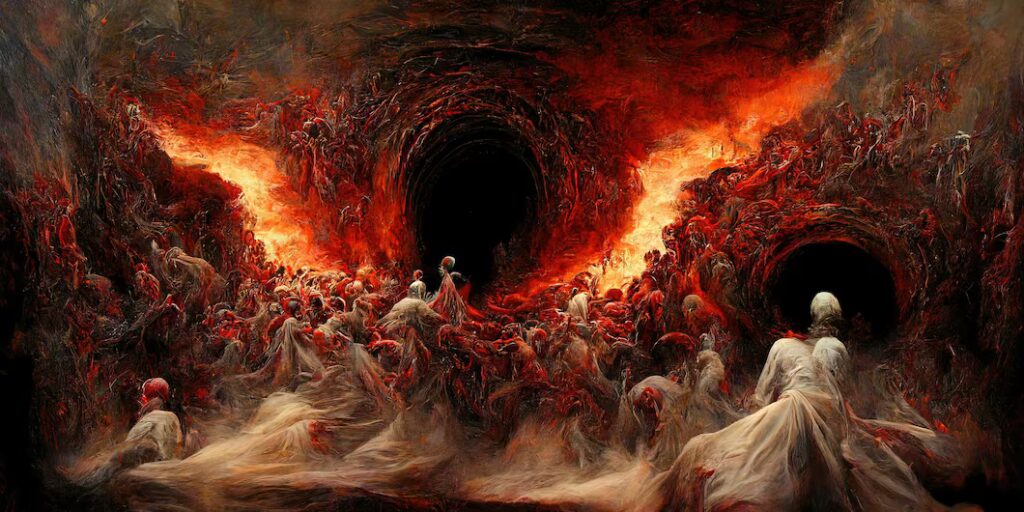The Bad News: The Case for Hell
As a strength and conditioning coach I get paid to make people uncomfortable for their own good, ultimately with the goal of getting them out of pain and discomfort. Consider that as we delve into perhaps the most uncomfortable topic for all people, is there a hell and why should I care. This one is free of charge.
The notion of hell is abhorrent to most, however, that’s exactly what it’s supposed to be. Nobody should regard a place of eternal torment and punishment with anything but abject fear and loathing. However it’s the despised thought of it that leads many to disbelieve in it. How could anyone deserve to end up in such a place let alone little old me?

The language of hell is judicial in nature. Hell is the final holding place for people convicted of crimes against their Creator, who also identifies as the Judge who rules over His creation with perfect justice. Just as in our natural lives we have seen fit to establish laws of conduct and just penalties with law enforcement and courtrooms presided over by judges tasked with knowing and administering fair judgment on a case by case basis, the same is true in the spiritual realm. Whether your steal a necklace from a woman’s purse or steal a billion dollars in a fraudulent ponzi scheme you have broken the law and, if caught, will face a judge who will hear your case and mete out a just punishment based on the written law. If you’re lucky the judge will consider your story and situation and perhaps be merciful, however if your crime is particularly heinous or if you have a pattern of criminality the likelihood of maximum sentencing is high.

Of course if any case against you is to be fair, here in America, the law guarantees you will be faced by your accusers so you can know who and what the charges are. For as much as we all agree in justice few things rankle our senses as an injustice seeing someone pay for a crime they didn’t commit. People will make themselves uncomfortable setting aside time and earnings to help another unjustly incarcerated to get a fair hearing in the court of public opinion and appeal to a higher authority in hopes of seeing the injustice corrected.
The claim made by God is we are all guilty of multiple crimes against His laws, every last one of us, and we will have to reckon with this reality one day. In order for our trials to be fair we likewise need to be confronted with our accusers and have knowledge of the law otherwise our cases should be dismissed. It stands to reason we should also know the penalty for breaking the law, just like we all implicitly are aware as we hurry past the next speed limit sign assuming on this day, in this moment, it doesn’t really apply to us because we’ve got places to be and we’re running late.

The case made against each of us is laid out clearly in God’s word, the Bible. As with the U.S. legal code one can find many hundreds of ways we can break God’s law. From lying to stealing to murder the law is laid out with detailed descriptions for each crime as well as a range of punishments to fit each circumstance. The same is true of the Bible, however each crime we commit against God results in the same penalty, eternal death. To many this seems harsh and cruel because we regard ourselves as mostly good people with only the occasional instance of transgression against God’s law. No one is bad enough to deserve an eternal punishment, right? We only lied a little, or stole a little, or looked at a little of the thing we know we’re not supposed to look at, right? We comfort ourselves with the same delusional sense of self-confidence that God won’t hold me as guilty as the really bad people.

The bad news? He will, because He is just. Even if your crimes are little white collar crimes the judgment and the penalty are the same because the playing field is perfectly level, for everyone.
You see, the crimes we commit against God are eternal crimes because the penalty is in light of an eternity with Him because God is eternal. If we want to be found innocent we need to be able to make the case our crimes (which He labels uniquely “sin”) are somehow not against Him, yet He makes it plain they are. You stole from someone else, you did so to Him. You lied to someone else, you lied to Him. We are all made in His image and likeness and held to the same standard – the crimes we commit in this life we commit against Him and His creation. As any earthly judge takes the law seriously how much more will He? We are “without excuse”, as He tells us.

Never mind the obvious one’s, we are guilty of “micro-aggressions” too. The spiritual law He lays out for us doesn’t just involve murder, it includes thinking about it on the spiritual plane. Adultery isn’t just the physical act, simply desiring it makes us guilty. The courtroom begins in our hearts and minds, and if we’ve been paying attention, we know they are “deceptively wicked above all things, who can know them”? God can.

Which is why He warns us in no uncertain terms and has gone to great lengths to make us abundantly aware of it, for if God is just and our trials are to be fair we need to be confronted with our accusers. In our case we have two – our consciences and His written law. We all have a conscience, of course, but are we all aware of His written law? He tells us He’s written it “on our hearts”, but He’s also written it in the Bible for those wanting to claim ignorance. In order for God’s case against us to be fair His law needs to be made available broadly. It is. His law, contained in the Bible, is the most published, printed, available, sold, gifted and distributed text of all time, and now with the internet it is available a thousand times over at the click of a button. So on the day we are faced with the case against us no one will be able to claim ignorance. As in real life, ignorance of the law is not a defense in God’s courtroom.
Now for the really bad news.
As each violation carries with it a penalty, God’s eternal law does too. God, ever the artist, explains this poetically for us to be reminded of His grace – “the wages of sin is death”. Wages? Wages are something someone earns as a result of the work they’ve done. What He is saying is, the death we face we have earned it. As a pastor once said, “ten out of ten people die.” We as natural-born sinners in a fallen world all face a death we’ve earned. No one gets out of this life alive. An honest look back at our lives reveals the litany of crimes – lying, stealing, lusting, coveting, slandering, murdering – all carrying with it the same penalty in the afterlife. Death, and death eternal, apart from God, who is holy and will not allow sin in His presence.

Yet God graciously has put in our hearts the concept of eternality, as He’s also put in our hearts and minds the desire for something better. That something better is a life after death where there is no more lying, stealing, murdering, slandering and discord among man, woman and child. We all sense it, long for it even.
However we all long for and believe in justice, and with the same measure we expect others to face it, it is waiting for us. God is perfectly fair, perfectly just, and we will all get the same just treatment without favoritism or nepotism.
The truth about hell, the place where God sends those who’ve broken His law and go there to pay the fine or earn their wages, is the one place where eternity with God and His peace and forgiveness are not. He calls it hell, and He tells us we’ve earned our place there, everyone.

If only there were some way to make a case for us to escape this fate…
